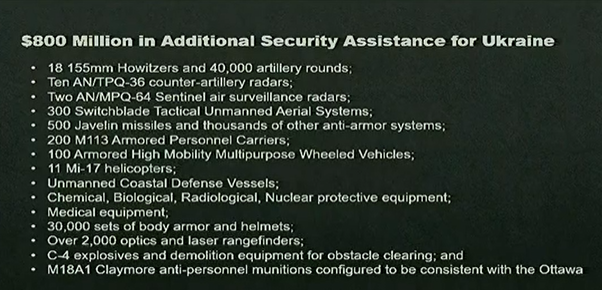The Coming Dissent Over Ukraine’s Peace Terms
Whenever serious negotiations appear nearer, disagreements among Ukrainians and their foreign supporters will become increasingly apparent and will mar what international unity there has been so far in standing up to Russia’s aggression.
by Paul R. Pillar
The Russian regime of Vladimir Putin probably is not yet ready to engage in negotiations in a sufficiently serious and fair-minded manner to end the war in Ukraine. Putin most likely sees a need first to redeem the image of Russia and its armed forces and improve its bargaining position by scoring some clearer military successes, probably through additional territorial gains in eastern Ukraine. But some kind of negotiated deal will eventually be the only way to bring the war and the suffering it has caused to a definitive conclusion.
Neither side is capable of bringing about such a conclusion through military means alone. Russia already has demonstrated its inability to secure its primary military objectives. And although Ukraine’s resistance has led some observers to declare it the “winner” in some respects, it is militarily incapable of expelling Russian forces from disputed territory or even from all the territory that Russia has seized since the current war began in February.
Whenever serious negotiations appear nearer, disagreements among Ukrainians and their foreign supporters over what peace terms should be considered acceptable will become increasingly apparent and will mar what international unity there has been so far in standing up to Russia’s aggression. A lack of consensus that already existed among Ukraine’s supporters regarding some issues in dispute between Russia and Ukraine has been exacerbated by the war itself and the way the Russian military has conducted it.
It would be difficult to formulate a simple and agreed-upon statement of the objective of the Ukrainian side in this war. Some of the more minimal statements coming out of Ukraine itself speak of saving the lives and livelihoods of Ukrainians and keeping them from living under a Russian dictatorship. Elsewhere in the West, there has been no shortage of maximal statements that Russia “must be defeated” and that Ukraine “must win.” The atrocities that have come to light in areas from which Russian forces have retreated will fuel more maximalist thinking.
Lack of consensus on objectives will probably be accompanied by a lack of consensus on what is militarily achievable. Conceivable Ukrainian military objectives range from what is almost certainly out of reach (such as retaking Crimea) to what the Ukrainians have already demonstrated is within reach (such as regaining some Russian-occupied areas near Kyiv). There is ample room for disagreement among analysts as to where on that spectrum any one objective may be.
Acceptability of specific peace terms is a matter, first of all, for the Ukrainians to sort out among themselves. President Volodymyr Zelenskyy has demonstrated now-legendary leadership skills in inspiring national resistance against the Russians, but his political skills will be sorely tested in adopting a posture toward a negotiated peace that will incite—as almost any posture in this situation will—anger from countrymen who believe he is not concluding a highly-destructive war soon enough or from other Ukrainians who think he is conceding too much to a hated Russian regime. He may well encounter anger from both.
The United States and other outside supporters should not try to manage this intra-Ukrainian debate. Supporters need to be aware of the range of views within Ukraine, however, and of the domestic pressures Zelenskyy will be under.
The divergence of opinions about acceptable peace terms will extend to the United States and its Western allies. Most attention so far regarding different transatlantic views on the Ukraine crisis have focused on different degrees of toleration of sanctions on Russia, especially given European dependence on imported energy. But different views about how to end the conflict also will flow from the conflict being conceived as more than just a war between Russia and Ukraine. Various conceptions of the war have also seen it as a contest between democracy and autocracy, between respect for national sovereignty and a lack of respect, between humanitarianism and inhumanity, and as a competition between great powers.
Most of those conceptions may imply holding out for better peace terms, at the risk of prolonging the war, than what most thinking in Kyiv might favor. There is a temptation, reflected in some of the most determined-sounding rhetoric coming out of the West, to fight this war to the last Ukrainian. That would be morally wrong. It also would be unwise for other reasons besides not prolonging the suffering of innocent Ukrainians.
It is unlikely, even if the Ukrainians continue over the next several weeks to fight as effectively as they have so far, that any conceivable peace settlement would restore Ukrainian control over all Ukrainian territory, including the Donbass and Crimea. Zelenskyy surely realizes this but also needs to avoid the politically painful, and probably politically suicidal, step of formally ceding territory in the face of Russian aggression. Squaring this circle probably will entail Ukraine and Russia agreeing to disagree about these territories, with de facto separation not accompanied by any de jure recognition by Kyiv. Some elements of such a formula are in a peace proposal that Ukraine reportedly already has given to the Russians.
The one plausible alternative to a negotiated and signed settlement that could wind down the war—a frozen conflict in which the firing nearly stops with Russian troops still in most or all of the Donbass as well as Crimea—would in most respects be a functional equivalent of the kind of settlement just described, although a formal agreed armistice would be better.
One theme sounded in much commentary about the war is that whatever kind of peace is to be reached must somehow assure that Russia will not violate the agreement and invade Ukraine again in the future. The general point about the needed longevity of peace agreements is valid, but this is a requirement that the war itself has made easier to meet. Given the military setbacks and enormous costs that Russia has sustained in this war—and the lessons this experience holds for any present or future Russian decisionmaker—the threshold for Russia ever invading Ukraine again is now much higher than it was two months ago.
Rat u Ukrajini
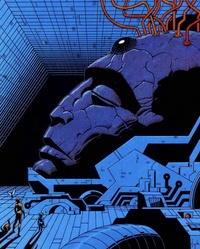
- Posts : 7242
Join date : 2019-11-04
- Post n°301
 Re: Rat u Ukrajini
Re: Rat u Ukrajini
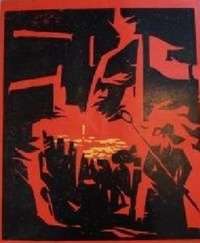
- Posts : 10415
Join date : 2020-06-19
- Post n°302
 Re: Rat u Ukrajini
Re: Rat u Ukrajini
Mór Thököly wrote:Meni je i dalje tesko da zamislim ilazak Šveda i Finaca u Nato, bukvalni mi je neverovatno. Ali postoji bar 50% šanse da će se dogoditi.
Finnish and Swedish leaders to hold joint press conference on NATO membership
The meeting in Stockholm comes less than two months after Russia's invasion of Ukraine, which has altered the regional security picture in Scandinavia.
_____
Međuopštinski pustolov.
Zli stolar.

- Posts : 8095
Join date : 2020-09-07
- Post n°303
 Re: Rat u Ukrajini
Re: Rat u Ukrajini
Pre nego što neko prenese ruski fejk bbc video:
We are aware of a fake video with BBC News branding suggesting Ukraine was responsible for last week’s missile attack on Kramatorsk train station. The BBC is taking action to have the video removed. We urge people not to share it and to check stories on the BBC News website.
— BBC News Press Team (@BBCNewsPR) April 13, 2022
_____
Sweet and Tender Hooligan

- Posts : 7242
Join date : 2019-11-04
- Post n°304
 Re: Rat u Ukrajini
Re: Rat u Ukrajini
Russia considers US and NATO vehicles transporting weapons in Ukraine as legitimate military targets, - Russian Deputy Foreign Minister Sergey Ryabkov

- Posts : 7242
Join date : 2019-11-04
- Post n°305
 Re: Rat u Ukrajini
Re: Rat u Ukrajini
HTTPS://FOREIGNPOLICY.COM/2022/04/13/UKRAINE-WAR-REALISM-GREAT-POWERS-UNIPOLARITY/
The Ukraine War Doesn’t Change Everything
Russia’s war marks the definitive end of America’s unipolar moment and returns the world to a state best explained by realism.
Stephen M. Walt, APRIL 13, 2022;
Sooner or later, the fighting in Ukraine will stop. No one knows how or when or what the final resolution will be. Maybe the Russian forces will collapse and withdraw completely (unlikely). Maybe Russian President Vladimir Putin will be removed from power and his successor(s) will cut a generous deal in the hopes of turning back the clock (also unlikely). Maybe the Ukrainian forces will lose the will to fight on (very unlikely). Maybe the war will grind on in an inconclusive stalemate until the protagonists are exhausted and a peace deal is negotiated (my bet). Even in that scenario, however, it’s hard to know what the final terms might be or how long it would endure.
Whatever the outcome, many observers believe the war will have a profound effect on the broader condition of world politics. They see the war in Ukraine as a watershed moment: a giant fork in the road. If Russia loses big, the “liberal world order” will get a new lease on life and the forces of autocracy will suffer a setback. If Putin ekes out some sort of win, however, they foresee a dark slide toward the totalitarian abyss. Existing norms against the acquisition of territory by force will be eroded, and other autocrats will presumably be empowered to launch similar campaigns whenever the geopolitical stars align in their favor.
The Ukraine war is important is important because it signals the end of the brief “unipolar moment” (1993-2020) when the United States was the world’s sole genuine superpower.
I see it differently. The war in Ukraine is a significant event, but not because the outcome will have a dramatic independent effect on the global balance of power or the normative environment that states have constructed (and sometimes adhere to). Rather, it is important because it signals the end of the brief “unipolar moment” (1993-2020) when the United States was the world’s sole genuine superpower and because it heralds a return to patterns of world politics that were temporarily suppressed during the short era of unchallenged U.S. primacy. The end of that era was in sight long before Russia invaded Ukraine, however, and the war itself is more of a punctuation mark.
I am less inclined to see the war in Ukraine as a transformative moment because I’ve heard that song too many times in recent decades. We were told that “everything had changed” when the Berlin Wall came down, the Soviet Union imploded, and the Warsaw Pact dissolved. A new world order was at hand, the “cynical calculus of pure power politics simply [did] not compute,” mankind had supposedly reached the “end of history,” and liberal capitalist democracy (preferably the American version) was now the only game in town.
But then “everything changed” again on Sept. 11, 2001, and we were suddenly in a “global war on terror,” which some overwrought analysts tried to repackage as “World War IV.” But hold on! “Everything changed” yet again when financial markets collapsed in 2008 and Wall Street’s “masters of the universe” were revealed to be gullible, fallible, and corrupt. And then “everything changed” once more when Donald Trump became president and began trampling every norm in the U.S. political playbook.
So forgive me if I have trouble seeing the war in Ukraine as a decisive turning point in the history of humanity. For all the damage and suffering that have already occurred, it has a long way to go before it reaches the levels of destruction wrought by the wars in Indochina, between Iran and Iraq, or in central Africa—or by the U.S. campaigns in Iraq and Afghanistan.
The war could still get there, of course—especially if weapons of mass destruction are used—but the odds are against it (a prediction that I fervently hope turns out to be correct). More importantly, what is different about the current war is that for the first time since the early 1990s—but hardly the first time in history—there are rival great powers on the opposite sides of a major war. But this is a reversion to familiar patterns of great-power conflicts (and proxy wars) and not something novel or unique.
As suggested above, this war is more accurately seen as marking the official end of the brief quasi-peace that followed the end of the Cold War. War didn’t disappear in that period—the United States fought in a bunch of them and started several—but the conflicts during this period were either civil wars, wars between minor powers, gross mismatches between major powers and minor powers, or some combination of all three.
Direct great-power competition was muted because neither Russia nor China was strong enough to openly resist the United States. Dartmouth College political scientist William Wohlforth was partly right when he wrote of the “stability of a unipolar world”: Few countries wanted to face the “focused enmity” of the United States or take actions that might bring the United States into the game in opposition. Where Wohlforth erred was his prediction that unipolarity might last even longer than Cold War bipolarity.
That misjudgment was not entirely his fault, however, as he could not have foreseen the repeated blunders that hastened the end of the unipolar era. U.S. primacy and unipolar stability would have lasted longer if U.S. policymakers had been smarter, less ideologically driven, and more realistic (in every sense of that term).
Instead of preserving U.S. power, resolving conflicts wherever possible, and working to ensure that no peer competitor emerged, U.S. officials mostly did the exact opposite. They helped China rise more rapidly and squandered trillions of dollars in costly and misguided crusades in the greater Middle East. Instead of extending liberal institutions gradually through mechanisms such as the Partnership for Peace, they expanded NATO with scant regard for Russian concerns and blithely assumed that Moscow could or would do nothing to stop it.
Instead of taking a more measured approach to globalization and making sure its benefits were widely shared inside the United States, they embraced neoliberal approaches to global trade and investment and did not do enough to insulate endangered sectors of the U.S. workforce from globalization’s consequences. And instead of working overtime to make American democracy a model that other societies might want to emulate, U.S. politicians—and here I refer primarily to the Republican Party—repeatedly trampled on the principles and norms that are essential for true democracy to survive. The unipolar moment was never going to last forever, but repeated sins of omission and commission—for which no one was ever held accountable—brought it to a premature end.
So where will this leave us? In the immortal words of Talking Heads: “Same as it ever was, same as it ever was.”
First, it is a world where hard power still matters, as everyone has now been reminded. If Russia succeeds in incorporating the Donetsk and Luhansk oblasts and a land bridge to Crimea, it will be because its military forces were able to accomplish that mission despite their earlier miscalculations and missteps.
If Ukraine retains all or most of its former territory, it will be because of the hard power its citizens employed (with lots of outside help) to stop its larger neighbor. If the much ballyhooed “norm against conquest” gets reinforced, it will not be because Putin suddenly remembered that norms ought to be followed but because the combination of Ukrainian nationalism and effective weaponry proved too much for Moscow to overcome.
Second, the world has been reminded—again!—that economic interdependence is not without risks and trade-offs. Markets surely matter, but politics matter more. Connecting the world through trade, investment, complex supply chains, and gas pipelines brought obvious and enormous benefits, but tight economic links are not an ironclad barrier to conflict and being dependent on others can cause real pain if those ties get sundered, whether by a dangerous virus or a sudden geopolitical fissure.
Looking ahead, most states and most firms are going to sacrifice some amount of economic efficiency for the sake of redundancy and resilience. Economic growth will be lower than it might have been otherwise, but disruptive shocks will occur less often and states and firms will be less vulnerable to economic pressure. When forced to choose between security and profits, most countries will choose the former.
Third, even if Russia achieves some limited gains in the Donbass, the war will accelerate its relative decline. Putin may prevent Ukraine from ever joining NATO, but the long-term consequences of that achievement will leave Russia worse off as a whole. Unless he erects a new Iron Curtain, talented young Russians will continue to leave. State revenues will decline as more and more countries wean themselves off Russian oil, gas, and coal. Ukraine will continue to move toward Europe economically, a process that was already underway before the war began.
If Putin does achieve “victory” in Ukraine—which is by no means certain—it will be a Pyrrhic one. Russia’s autocracy may be more secure but less consequential. The world of the future will be closer to true bipolarity than lopsided multipolarity, with Russia playing the role of China’s junior partner (and one whose economic vitality and long-term strategic value may be diminishing). It won’t help Beijing’s image to be closely linked to Russia’s destruction of Ukraine, and Moscow could need more propping up as Russia’s economy falters and its population ages and shrinks.
The emerging future will be neither a U.S.-centered “liberal order” nor a Chinese-centered autocratic one. Instead, each of these two major powers will lead partial orders that incorporate states that either share similar values or have little choice but to align with one side or the other. And make no mistake: Both Washington and Beijing are going to expect a lot of loyalty from some of their allies. Expect to see greater division and contention in the digital space as the two countries compete to determine which technical standards will predominate and as the digital world gradually segments behind firewalls, safeguards, incompatible privacy standards, and other restrictions.
But as the global response to Ukraine suggests, many countries—especially those in the global south—will resist pressures to pick a side and will try to remain aloof from quarrels that do not involve them directly. Some of them will try to extract greater benefits by playing the United States and China off against each other. Among other things, this situation is a reminder that trying to base U.S. foreign policy on a rigid dichotomy of “democracy vs. autocracy” is a recipe for failure. As in the past, success will require cooperating with like-minded partners where possible and with states that do not share U.S. values when necessary.
Unfortunately, cooperation among the major powers is going to be a lot harder to achieve and sustain, even when their interests are partly aligned. This could be the most significant fallout from this nasty but thus far localized war: It gives major powers the excuse to ignore the less imminent but far more ominous danger of accelerating climate change. Dealing with climate change is going to require sacrifices by all the major powers, but they will be less willing to make them when they are worried about the global balance of power and are reluctant to give up more than their rivals.
We are back in a world that realism explains best, one where great powers compete for power and influence and others adapt as best they can. The jungle isn’t “growing back,” as Robert Kagan would have us believe; it never really went away, even when the United States was the biggest beast and deluded itself into thinking it could make all the other animals behave. That’s not a particularly happy thought, but the world that realism depicts is not a particularly happy world.
Stephen M. Walt is a columnist at Foreign Policy and the Robert and Renée Belfer professor of international relations at Harvard University.

- Posts : 11764
Join date : 2014-10-27
Location : kraljevski vinogradi
- Post n°306
 Re: Rat u Ukrajini
Re: Rat u Ukrajini
As in the past and present. Mislim za ovo se najmanje bojim da će praviti geopolitičke greške oslanjanjem na demokracije. Naprotiv.Among other things, this situation is a reminder that trying to base U.S. foreign policy on a rigid dichotomy of “democracy vs. autocracy” is a recipe for failure. As in the past, success will require cooperating with like-minded partners where possible and with states that do not share U.S. values when necessary.
_____
Ha rendelkezésre áll a szükséges pénz, a vége általában jó.

- Posts : 8095
Join date : 2020-09-07
- Post n°307
 Re: Rat u Ukrajini
Re: Rat u Ukrajini
Lična karta sa Palilule, tetovirani grbovi Beograda i Gravediggersa, majica bezveze, nije jasno gde je uhapšen
_____
Sweet and Tender Hooligan

- Posts : 7775
Join date : 2017-03-14
- Post n°309
 Re: Rat u Ukrajini
Re: Rat u Ukrajini
pojavila se info da je uhapšen u Beogradu samo nije jasno zbog čega (isticanja nacističkih obilježja možda, mada se takvi koliko sam vidio slobodno šetaju BGom)Notxor wrote:Lična karta sa Palilule, tetovirani grbovi Beograda i Gravediggersa, majica bezveze, nije jasno gde je uhapšen
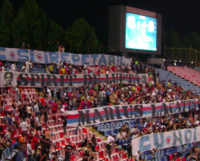
- Posts : 28265
Join date : 2015-03-20
- Post n°310
 Re: Rat u Ukrajini
Re: Rat u Ukrajini
u AZOV majicama tesko.
_____
#FreeFacu
Дакле, волео бих да се ЈСД Партизан угаси, али не и да сви (или било који) гробар умре.

- Posts : 7775
Join date : 2017-03-14
- Post n°311
 Re: Rat u Ukrajini
Re: Rat u Ukrajini
i na skorije izvađenoj LK mu je lažno ime
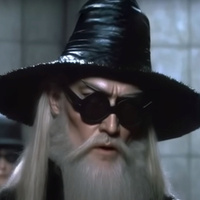
- Posts : 8696
Join date : 2016-10-04
- Post n°312
 Re: Rat u Ukrajini
Re: Rat u Ukrajini
Нешто ми је чудно да наша полиција даје овакве фоторепортаже.

- Guest
- Post n°313
 Re: Rat u Ukrajini
Re: Rat u Ukrajini
lik ima banijsko prezime.
kreteni sa Reddita: NEMA SRPSKO PREZIME BRATE!
kao moj ortak, inače dosta obrazovana osoba, vidi prezime Ševo na talas.rs, i zaključi da je to sigurno Ukrajinac. valjda zato što se završava na "o".
kreteni sa Reddita: NEMA SRPSKO PREZIME BRATE!
kao moj ortak, inače dosta obrazovana osoba, vidi prezime Ševo na talas.rs, i zaključi da je to sigurno Ukrajinac. valjda zato što se završava na "o".

- Posts : 35788
Join date : 2012-02-10
- Post n°314
 Re: Rat u Ukrajini
Re: Rat u Ukrajini
Cuj Sevo da bude ukrajinsko prezime. Ukrajinsko prezime je npr Filipenko
_____
★
Uprava napolje!

- Guest
- Post n°316
 Re: Rat u Ukrajini
Re: Rat u Ukrajini
najjače mi je bilo kad su na Stormfrontu pravili spiskove Jevreja u Srbiji. sve Jermene su strpali među Jevreje, sve Gruzine takođe...

- Posts : 10415
Join date : 2020-06-19
- Post n°317
 Re: Rat u Ukrajini
Re: Rat u Ukrajini
Cousin Billy wrote:najjače mi je bilo kad su na Stormfrontu pravili spiskove Jevreja u Srbiji. sve Jermene su strpali među Jevreje, sve Gruzine takođe...
I Đorđa Davida

_____
Međuopštinski pustolov.
Zli stolar.

- Posts : 22555
Join date : 2014-12-01
- Post n°319
 Re: Rat u Ukrajini
Re: Rat u Ukrajini
I na strani i kod kuce, Sevo brani nemoguce!
Inace, lik mi deluje ko neki mladji brat kneza Srkija Babovica.
Inace, lik mi deluje ko neki mladji brat kneza Srkija Babovica.

- Posts : 41651
Join date : 2012-02-12
Location : wife privilege
- Post n°320
 Re: Rat u Ukrajini
Re: Rat u Ukrajini
Filipenko wrote:I na strani i kod kuce, Sevo brani nemoguce!
Inace, lik mi deluje ko neki mladji brat kneza Srkija Babovica.
Познато ми то презиме, тај Cheveaux... има их и овде. Био и неки политичар са тим презименом, или директор нечега, бемлига.
_____
electric pencil sharpener is useless, electric pencils don't need to be sharpened at all
И кажем себи у сну, еј бре коњу па ти ни немаш озвучење, имаш оне две кутијице око монитора, видећеш кад се пробудиш...

- Posts : 52553
Join date : 2017-11-16
- Post n°321
 Re: Rat u Ukrajini
Re: Rat u Ukrajini
Cini se da ce Rusi napasti ne samo Donbas, nego i iz pravca Herosona

- Posts : 22555
Join date : 2014-12-01
- Post n°322
 Re: Rat u Ukrajini
Re: Rat u Ukrajini
To tvrdi britanska obavestajna sluzba. Nekako sam skeptican.

- Guest
- Post n°324
 Re: Rat u Ukrajini
Re: Rat u Ukrajini
Ukrajinci se hvale da su pogodili sa dve rakete flagship crnomorske flote, Moskvu. Za sada nema nikakve nezavisne potvrde.

- Posts : 41651
Join date : 2012-02-12
Location : wife privilege
- Post n°325
 Re: Rat u Ukrajini
Re: Rat u Ukrajini
Cousin Billy wrote:stiže novi paketić
Оверено, првокласна роба, није сечено ничим?
_____
electric pencil sharpener is useless, electric pencils don't need to be sharpened at all
И кажем себи у сну, еј бре коњу па ти ни немаш озвучење, имаш оне две кутијице око монитора, видећеш кад се пробудиш...



 by Del Cap Wed Apr 13, 2022 12:51 pm
by Del Cap Wed Apr 13, 2022 12:51 pm
 Nektivni Ugnelj
Nektivni Ugnelj
